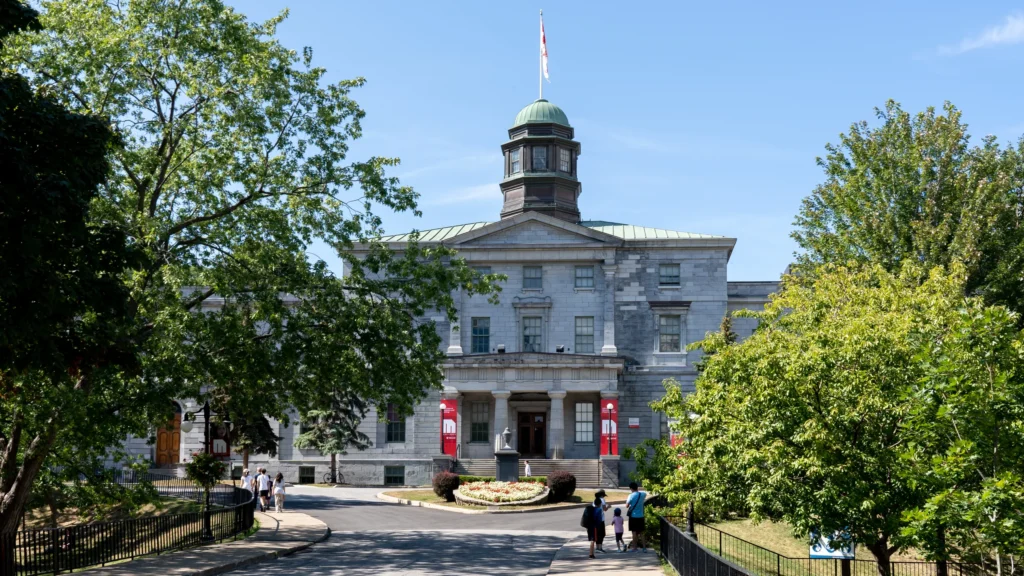
McGill University has sought to limit Access to Information (ATI) requests. On December 7th, 2012, McGill filed a motion with La Commission d’accès à l’information du Québec to request “to be authorized to disregard requests that are improper because of their number and systematic nature.” Specifically, McGill is seeking to deny several recent ATI requests, filed by 14 students, along with student publications, as well as to have some discretion over adhering to future requests.
Citing various articles published in the McGill Daily, The Concordian, and La Press, the motion reads that “the requests are specifically formulated not only for the purpose of gathering material for publication on the McGilliLeaks website but essentially as a retaliatory measure against McGill in the aftermath of the 2011-2012 student protests.”
ATI requests in question ranged from detailing administrative finances, to uncovering McGill’s role in military research and fossil fuel investments. McGill is lumping the 14 students together to make the point that there are too many requests being filed and that the “the scope of documents and information requested by the respondents is unreasonable,” notes the Administration in the motion.
McGill is seeking authorization to disregard numerous requests due to their broadness and because the University finds that the processing of the requests would seriously interfere with university activities. McGill is also seeking to disregard future requests that show one or many of the following characteristics: overly broad, frivolous, target trivial documents, are similar or identical to previous requests, associated to documents published on McGilliLeaked, or “are intended to fail because are obviously subject to imperative restriction to the right of access.”
ATI requests involving military research seek information regarding the Shockwave Physics Group, part of the McGill Department of Mechanical Engineering, which focuses on “the study of high-speed turbulent deflagration and detonation phenomena.” The requests are particularly interested in research at McGill involving military scenarios, arms, detonation, combustion, and shockwaves.
The ATI requests listed were filed during the period from October 5th to November 28th, 2012. One ATI request from October 14th, 2012, the exact same ATI request that McGill received on October 11th, seeks to obtain documents and information relating to: “the names and research topics of all researchers employed by McGill who receive funding from external bodies involved in military operations, including arms manufacturers, governmental departments of defense, armed forces, and police agencies.”
On October 19th, McGill requested additional information to adequately process the request. On November 13th, the respondent provided an extremely broad clarification, which included a list of 33 private military contractors, 41 arms manufacturers, as well as Wikipedia disambiguation lists of: all militaries by country, Ministries of Defence of 67 countries, and Departments of Defence of 7 countries. Also requested was information regarding the names of all researchers employed by McGill who receive funding from external bodies involved in ten police agencies in Canada, including the RCMP and Montreal Police, as well as the Department of Justice, Department of Homeland Security, and the NYPD in the US.
Another ATI request, dated October 22nd, 2012, seeks documents listing the amounts of investments held by McGill, including endowment and pension funds in several oil companies, including Chevron, Royal Dutch Shell Company, Enbridge, Transcanada Corp., Imperial Oil, and Suncor Energy. It goes so far as to request documents detailing any ties or conflicts of interest that senior university officials or professors have with said companies. This, in effect, is seeking the information on the personal investments of university employees.
Other ATI requests seek information on matters including: the amount spent on lobbying and the scope of lobbyist activities, communication between Montreal Police and the Principal’s Office or McGill Security, and the floor plans and maps of all McGill buildings, tunnels, spaces, emergency exits, and fire escapes.
Also requested were: all Memoranda of Understanding and Memoranda of Agreement between McGill and other entities, documents relating to Plan Nord, as well as catering receipts for the offices of Provost Masi and Principal Monroe-Blum from 2002-2012.
While the scope of the requests is extensive, the respondents argue that if the motion filed by McGill were to be granted, McGill would have the power to effectively disregard requests from campus media, students with inquiries, and general access to information requests. They find that it would give the Administration near total discretion to decide to grant or deny which ATIs it files.
One of the respondents, who declined to be named, is concerned that “the University cannot be trusted to use this discretion in any fair way. This could deter students and journalists alike from filing ATIs for fear of having their requests rejected.” In addition, the respondent finds that “there is no logic that holds up for why these 14 people are being lumped together.”
Christopher Bangs, McGilliLeaked founder and U3 Economics student, states that “the fear is not just for the 14 of us, but anyone who has a connection with us or the aforementioned media sites. How will McGill decide who is connected with us and our organization? What sort of justifications will the University have in the future?”
According to the respondents, the McGill Administration never forewarned the students that their ATI requests would be denied, nor was it brought to their attention that their requests were “too complex.” Bangs exclaims that he has begun to “question McGill’s motives, because they never told us it was too much, too complex, before they filed this motion. They never talked to us about it.”
In the motion, the Administration writes, “it must be noted that certain requests have been processed in whole or in part by McGill, which demonstrates the willingness of the University to respect its obligations under the Access to Information Act.” The Administration finds that “the scope of documents and information requested by the respondents is unreasonable, each request often representing hundreds if not thousands of pages, and spanning a time period of often more than 10 years.” The Administration argues that they cannot process all of the requests within prescribed delay of 20 days, nor within the additional 10 days period provided by the Access to Information Act.
Update – January 23, 2013 at 9:25pm: The McGill Media Relations Office (MRO) responded to The Bull & Bear‘s latest inquiries:
In the motion, I was wondering if you could clarify what is meant by the text, “the requests are specifically formulated not only for the purpose of gathering material for publication on the McGilliLeaked website but essentially as a retaliatory measure against McGill in the aftermath of the 2011-2012 student protests.”
Julie Fortier, Associate Director of the MRO: Many of the respondents in the motion have been quite vocal about their disagreements with the Administration and some are closely associated with events that occurred on the McGill campus last year, such as the occupations of the James Administration Building. Submitting requests that they know are impossible to respond to within the required delays is just another way for them to disrupt university operations, and claim that the University is poorly managed. For example: two of the persons requesting a lot of documents did not come to pick them up when they were informed that they were ready.
Some students argue that granting this motion would give the Administration near total discretion to decide which ATI requests it grants or denies. What sort of precedent do you think that granting this motion would set for future ATI requests?
Fortier: Let us clarify: we are only asking for permission to ignore abusive requests from these individuals, or others associated with them. This does not mean that we will not deal with other, reasonable, requests. Even requests from these 14 if they are not abusive.







